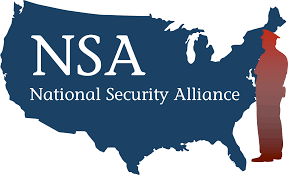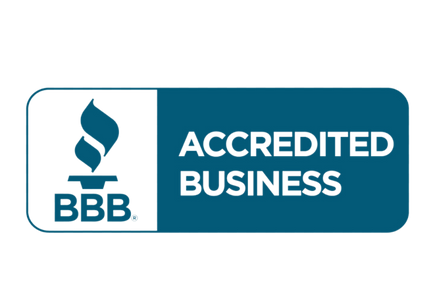
Insurance for Security Firms: Challenges with Broker Relationships and How to Solve Them
Security Guard Insurance Brokers: Top Relationship Challenges & Proven Solutions
Randi Sherman
5-Minute Read
Risk management is an ever-present concern for private security companies. Security comes with its fair share of perils as it is, but we live in challenging times.
The security landscape is changing rapidly, amplifying the potential for legal challenges and liability. You need to know your insurance broker has your back in every way that matters.
Working with a broker experienced in the security industry ensures you have the commercial insurance coverage, insight, and protection you need when the chips are down. These brokers understand your unique challenges and have the knowledge and experience to help you make the best decisions for your security business.
To gain expert insight, we sat down with Jon Black of Hub International, a leading insurance broker and trusted partner in our security enterprise.
Top 10 Best Practices for Security Insurance Broker Partnerships
When choosing an insurance broker, Jon shared what he believes are the most critical aspects of a healthy broker-client relationship.
- Broker Expertise. Partnering with a broker that specializes in the security industry is essential. Generalists won’t always understand the nuances of your industry and the critical nature of certain coverage. Working with a specialty broker ensures you have the niche expertise to handle specific risk management needs and provide timely, accurate advice.
- Communication and Timeliness. Regular and transparent two-way communication is essential. Any delays in incident reporting can be massively detrimental and potentially costly. For example, let’s say a person fell on a guarded property. The guard may think the injury was inconsequential, so they don’t report it. Several months later, the firm gets a notice of legal action as the person’s injury was more severe than initially thought. The company has to defend its position without adequate reporting or evidence to support its claims. The incident should be appropriately documented and reported, even if it was minor. That way, the insurance company has time to prepare a defense should it come to that.
- Risk Management. Having a broker that understands the unique liabilities of the security industry ensures you have tailored advice. Going back to the example described in the previous point, the broker would be able to advise and prepare on how to mitigate and minimize the impact of a lawsuit. Further, understanding the type of security a firm offers helps inform proactive solutions to reduce risk, such as installing cameras or ensuring gates lock properly.
- Addressing Coverage Gaps. Insurance carriers are increasingly excluding certain types of coverage. Picking up on these details is not easy, but your broker should be able to. They work with these forms daily and can pick up on subtle changes you might not know otherwise. For example, Jon cites a situation with a school shooter. The guard handled the situation perfectly, but people still made claims based on trauma and emotional injury. In the end, the insurance provider had excluded school coverage and pointed to that exclusion when denying the claims. Had the company been working with a broker who understood their business model and clientele, they would have been able to pinpoint the changes, negotiate, or switch carriers.
- Proactive Solutions. A broker relationship should be collaborative. Nothing in security is cookie-cutter, and a customized approach is vital. Experienced brokers will understand the business’s unique needs and ensure the policy is comprehensive and up-to-date based on these points. Jon points to Hub’s onboarding process, during which they ask the client a set of questions for every service category so they can better understand the risk. Knowing these factors makes it easier for a broker to recommend the proper commercial insurance coverage.
- Keeping Insurance Premiums Down. Building on the previous couple of points, in which the broker deeply understands the firm’s clientele and business model and has done a great job of mitigating risk factors proactively, they can present a compelling case to an underwriter, who might otherwise assume the risk warranted a higher premium.
- Regular Policy Reviews. Policies should be reviewed regularly, ideally through monthly or quarterly meetings, to ensure they remain relevant as the business and industry evolves. Sudden industry shifts, new business models, and different types of clients with unique needs indicate that coverage should be reviewed. Regular meetings may also highlight exclusions the firm should be aware of so they won’t be blindsided by a premium increase or coverage gap. Jon highlights the need to address these issues in real time as it may affect rates or the type of client the firm takes on.
How to Evaluate a Security Guard Insurance Broker
We’ve established the critical nature of having a security insurance broker who is truly knowledgeable in contract security. But how do you know? Business owners are experts in what they do, and they expect the professionals they hire to offer the same level of expertise.
Of course, we’re biased where Hub International is concerned; they’ve done right by us from day one—and Jon has done us a huge favor by sharing his insight here today.
Here are a few benchmarks to help you choose wisely.
· Ask reputable firms for recommendations. It’s a small community with a handful of respected players at the top. Find out who they use and what their experience is, and ask for a referral. You want a broker for security firms with a solid foothold in the security niche, as they will ensure you are protected based on your specific needs and business goals.
· Focus on relationships. Your broker should be more of a partner than a vendor. They can be hugely influential in terms of risk management and profitability. Partners are not just transactional. There’s a steady flow of communication and motivation to act as your business evolves, the industry landscape changes, or you bring in a contract with more expansive insurance requirements.
· Training and experience. We can’t stress enough the importance of industry knowledge. This comes into play when it’s time to review or renew and can save you a lot of money. An experienced broker will be knowledgeable about changes in the industry that affect your coverage or liability, such as risk transfer and safety, and advise you on the best way forward. They will be accountable to the company and their clients and ensure there’s always a solid layer of protection around them.
Key Takeaways: Mastering Your Security Insurance Strategy
Perhaps the biggest takeaway from our conversation with Jon is that an insurance strategy needs to be holistic. Coverage should never be static. Your broker is the best person to ensure that you are protected based on your specific needs, the type of clients you have, and the security services you offer. Of course, choosing the right broker is key. Think of it as a strategic, mutually beneficial partnership and an investment in your company’s growth.






